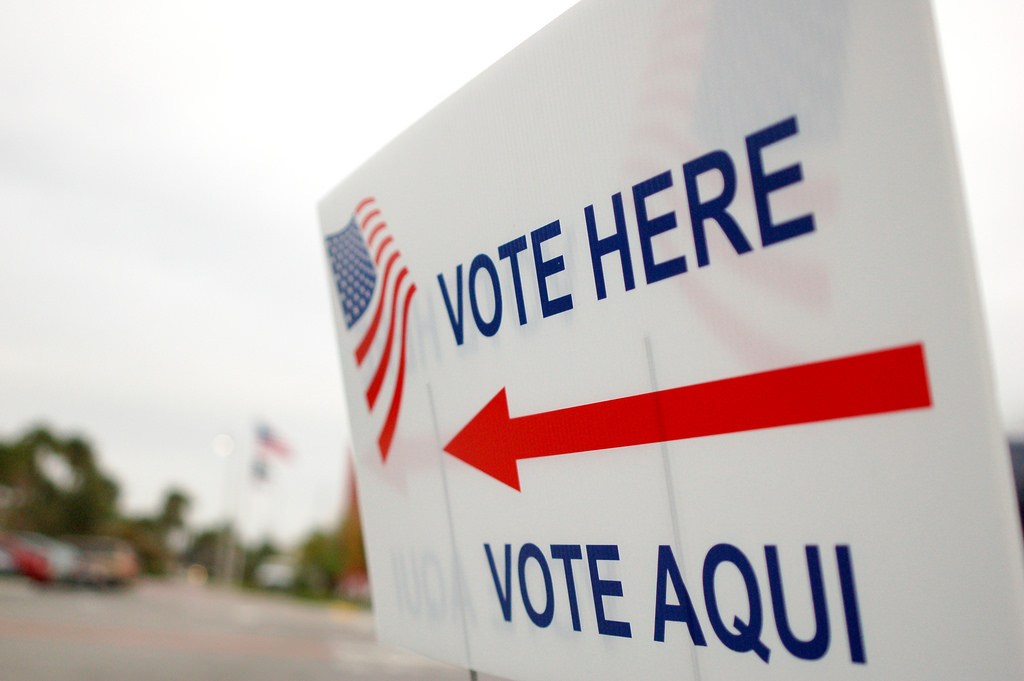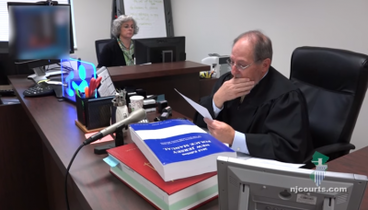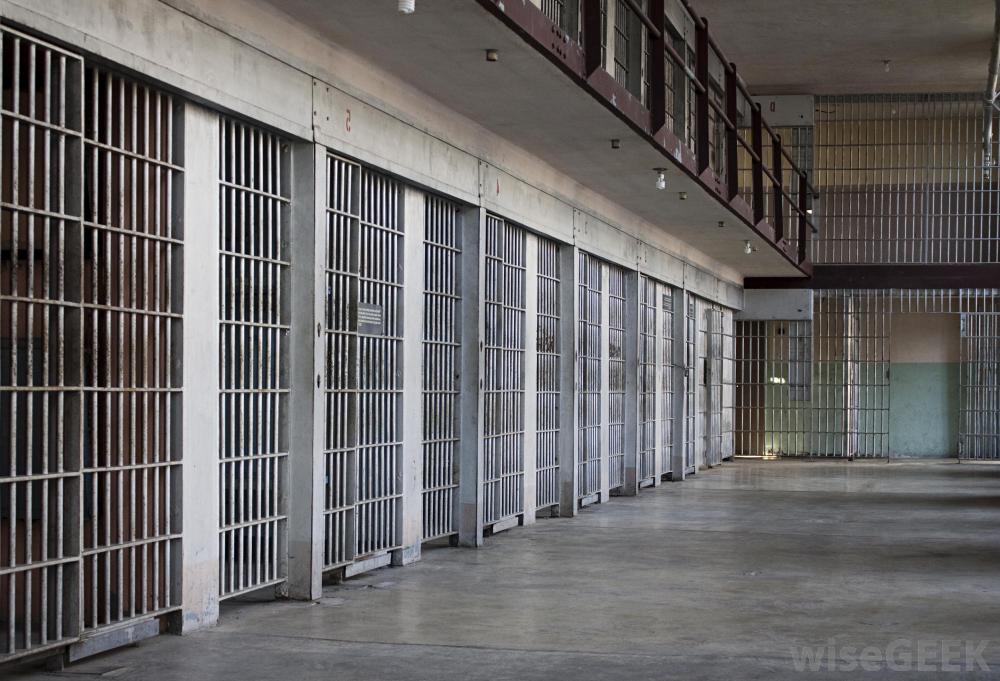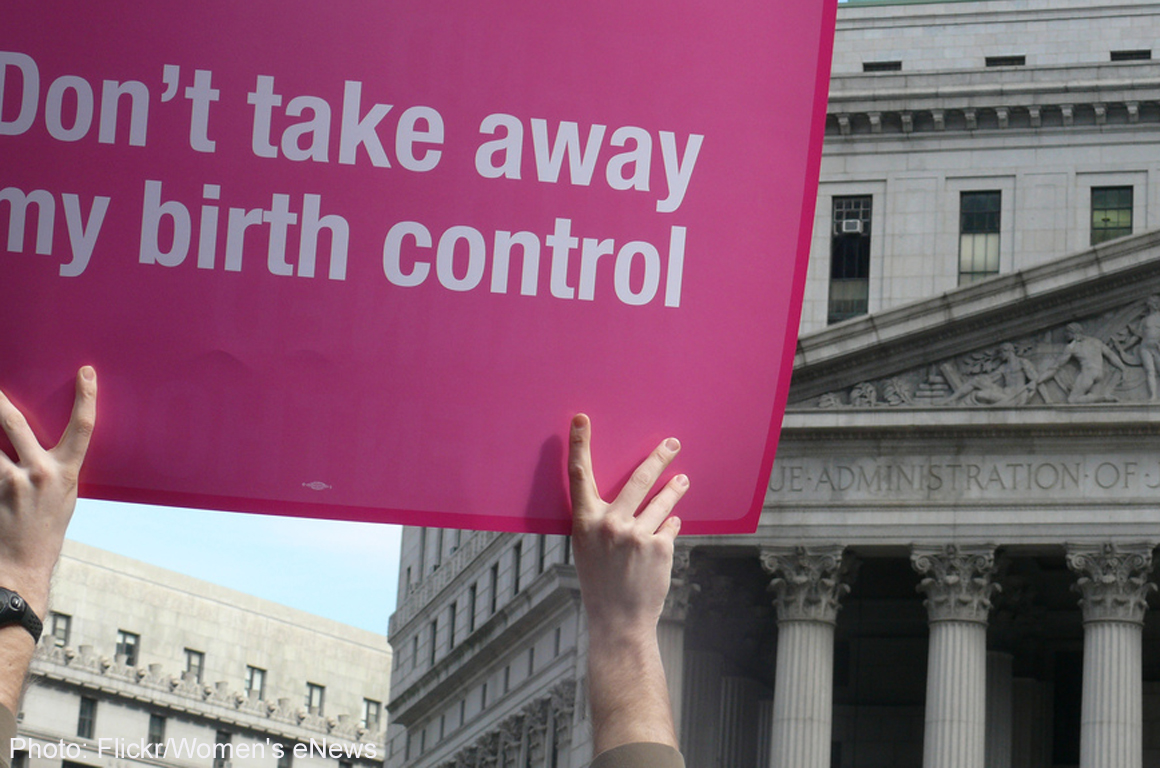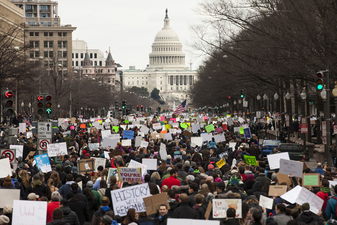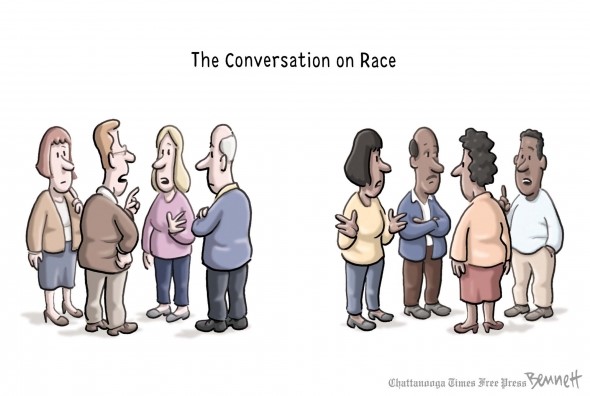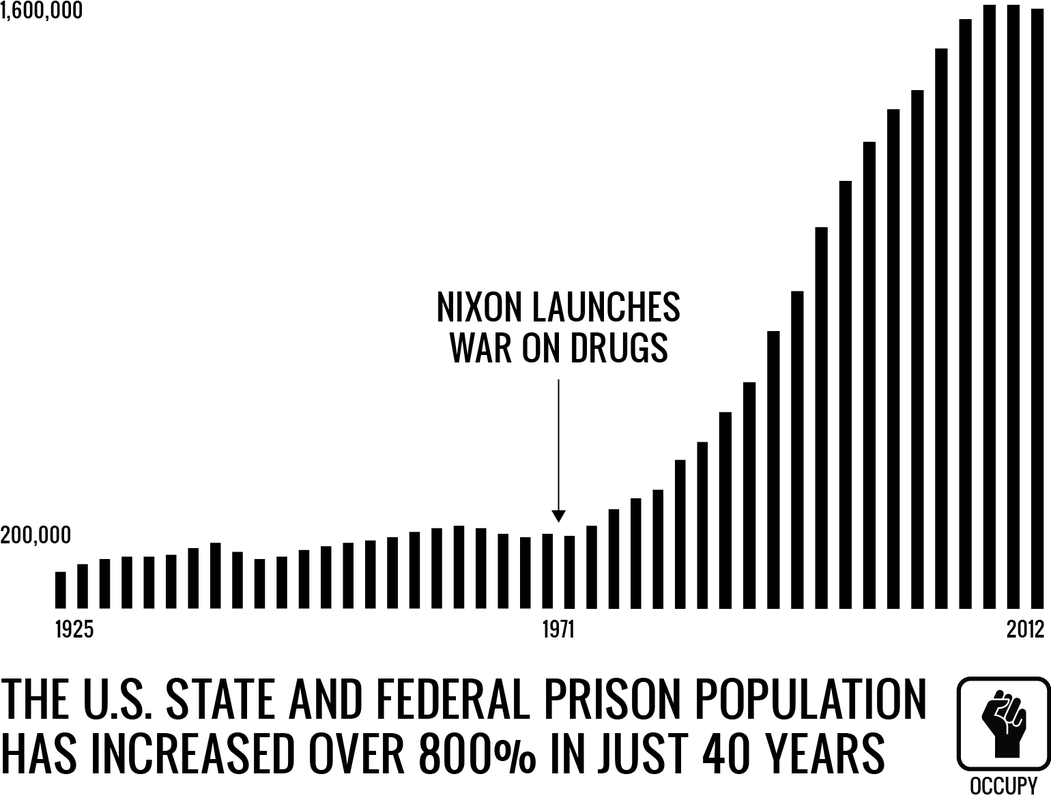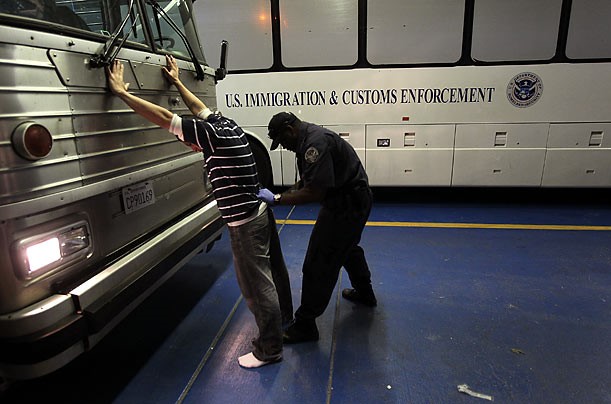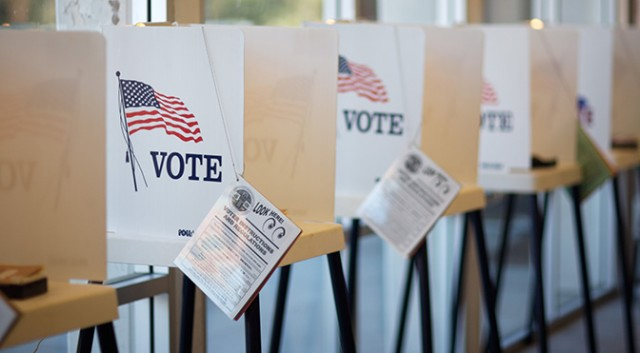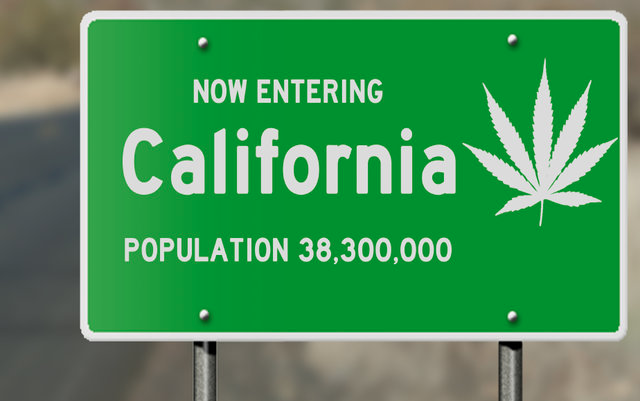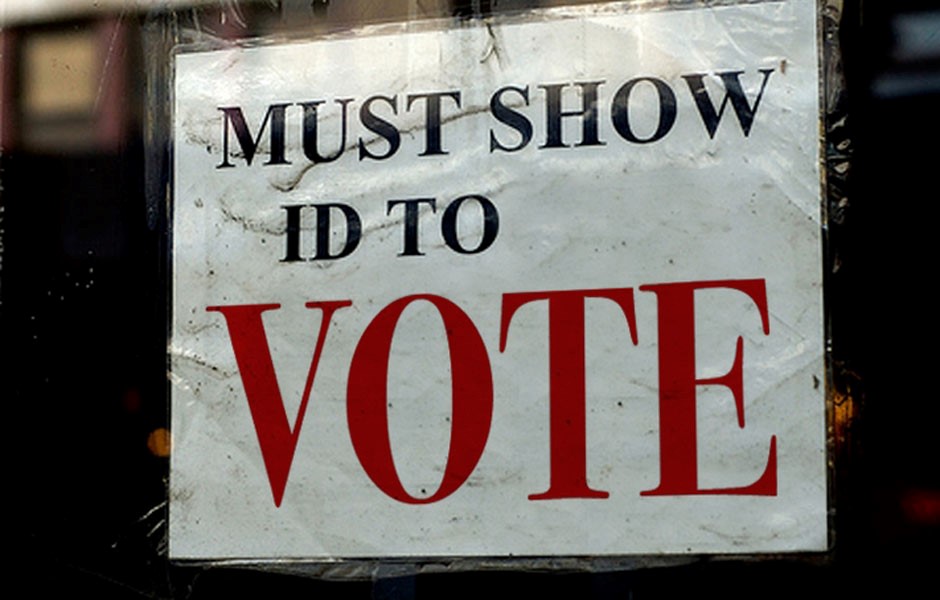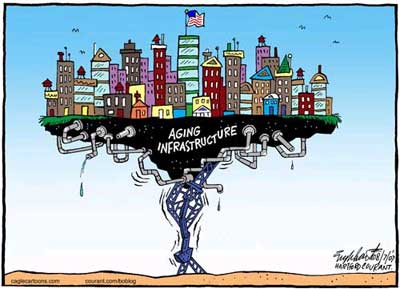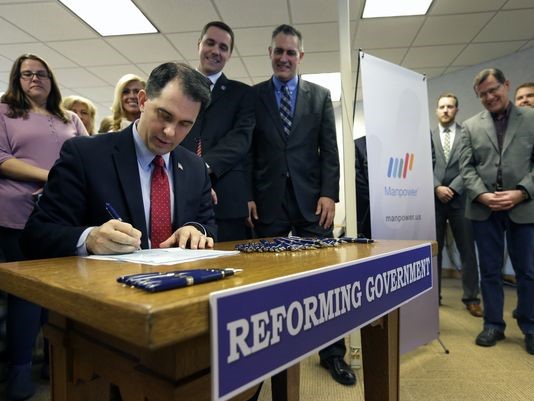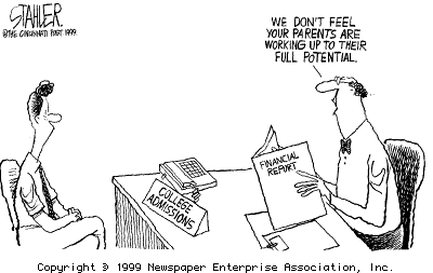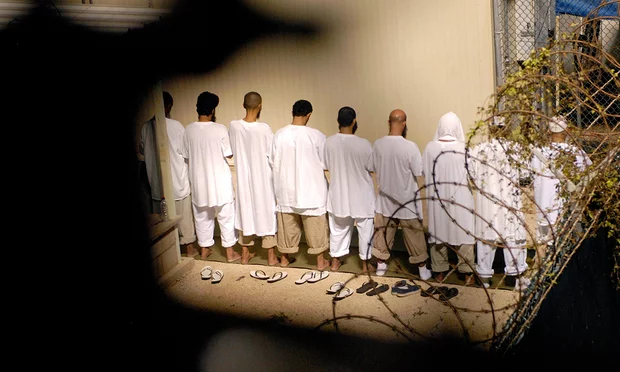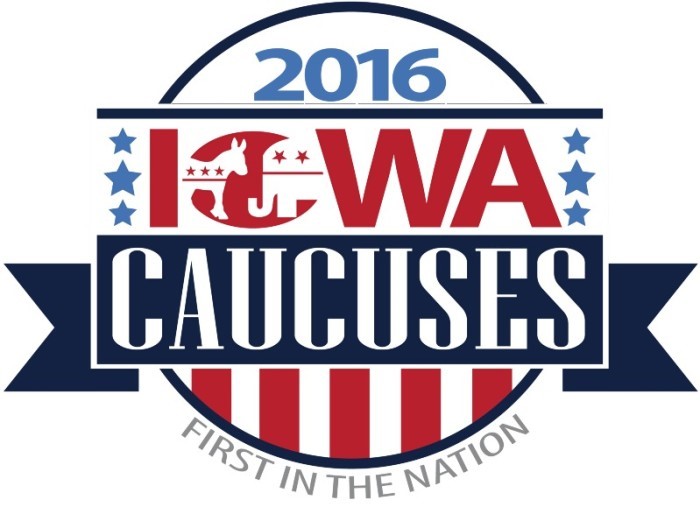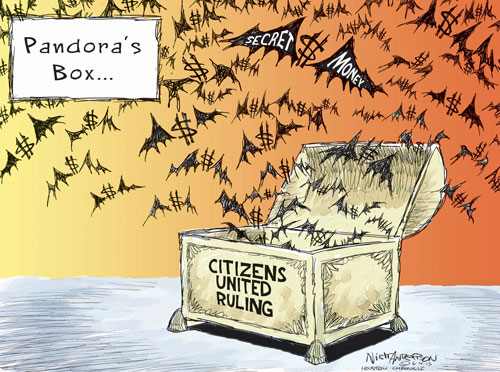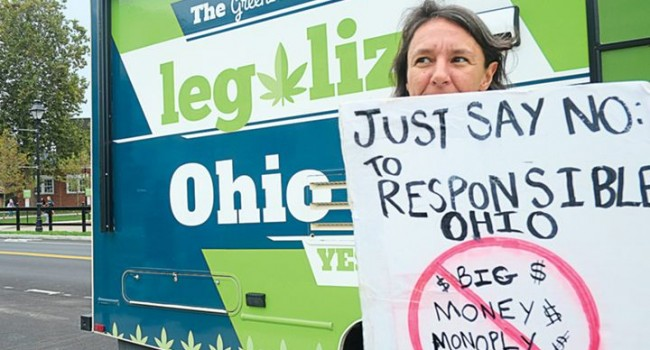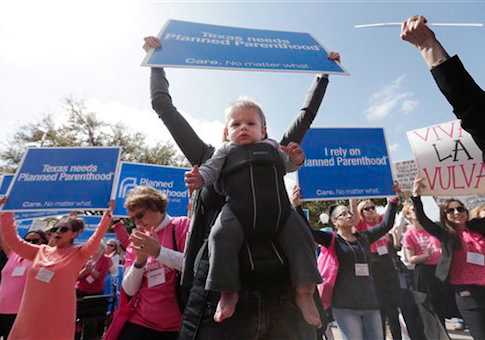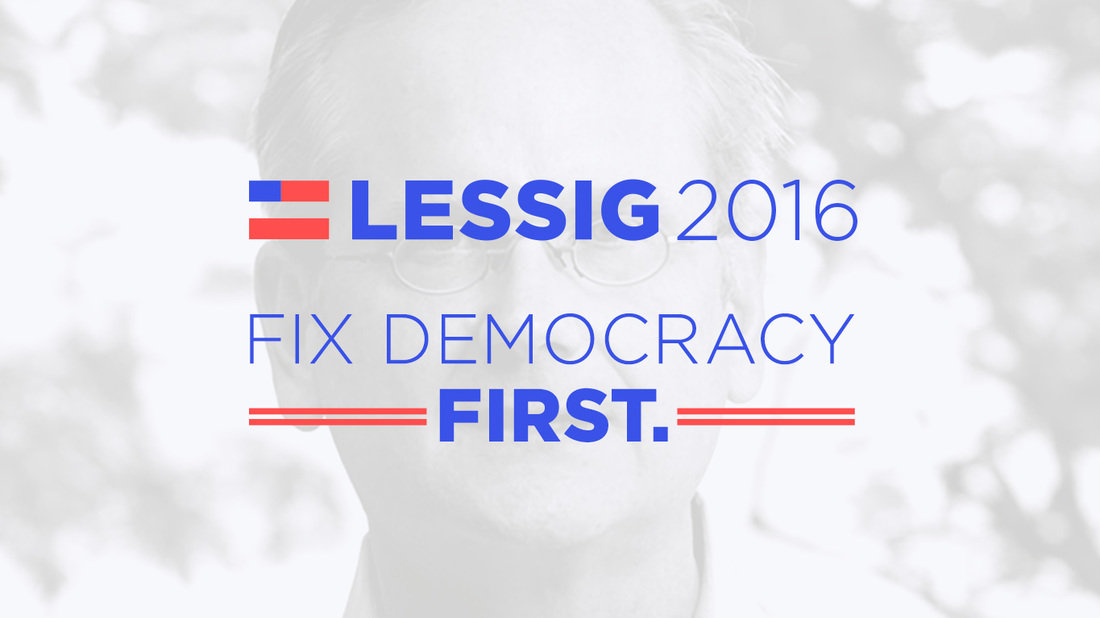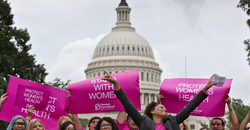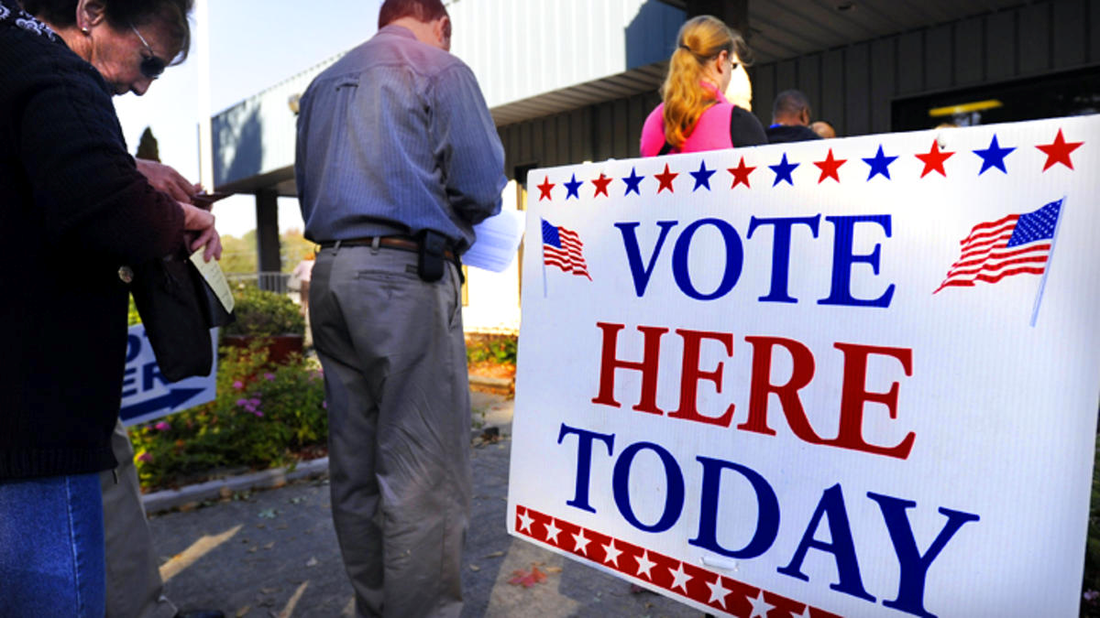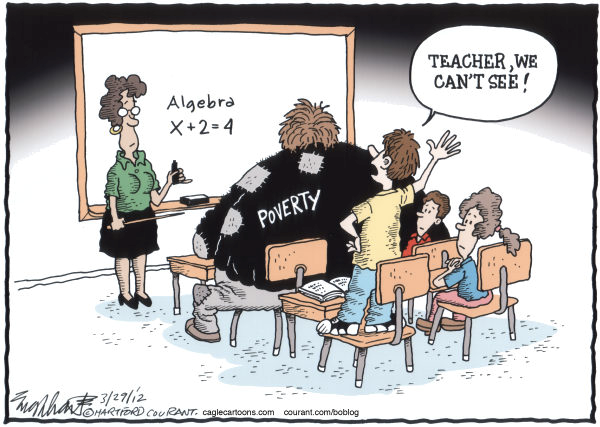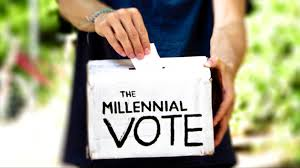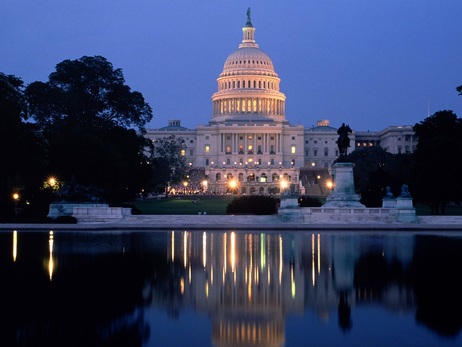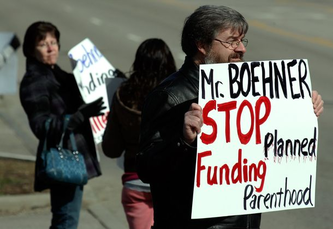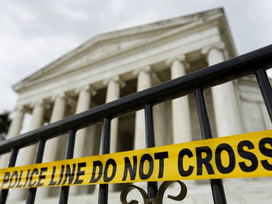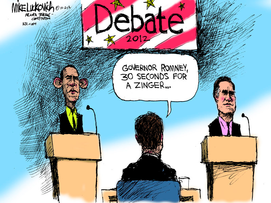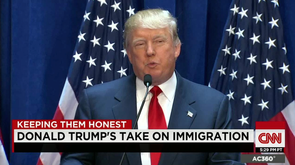Polling Place Closures: Another Form of Voter Suppression
|
By Henry Kanengiser
12/15/2017 In the Alabama special election for US Senate seat in December 2017, America woke up to the news of a surprising upset. What is particularly striking from this election was the outpouring of votes for Jones actually overcame racial voter suppression. One of these methods, polling place closures, is particularly nefarious. |
The Case for Railroad Reform
|
By Kiersten Rhodes
11/5/2017 As a nation of cars and car-drivers, public transportation in America is often overlooked and pushed to the wayside, especially long-range intercity options like Amtrak. Legislators in Congress also have been reluctant to address its problems, ranging from slow service to lack of stations in rural areas. However, supporting a robust and modern Amtrak system will be beneficial both to Americans and America’s economy by creating more alternative travel options and infrastructural improvements. |
The Broken Bail System
|
By Samantha Lustig
11/5/2017 If you were to get arrested today, your path through the criminal justice system would be heavily determined by your financial situation. Whether or not you’ll spend the next few days or weeks in jail depends completely on your ability to post bail. Thousands of people every year are criminalized for their inability to pay these fees, unfairly trapping America’s poorest citizens in the prison system. |
Stopping the Disease in its Tracks, But This Time Without Painkillers
|
By Anna Malinowski
11/5/2017 The opioid epidemic exploding across the country is one of the nation’s most pressing public health concerns. Its solution may, however, be rooted in public policy. |
Too Much Faith in Our Machines
|
By Lala Xu
11/5/2017 Risk assessment algorithms have great potential to be a useful and innovative tool in criminal justice, however they still need much work before they can be considered a reliable decision-making mechanism. |
Mass Incarceration and Police Violence in Native American Communities
|
By Jackson Ross-Pilkington
11/3/2017 While police violence and mass incarceration are often discussed in the media, one community that is sometimes left out is Native Americans. Both problems are serious issues for the community. However, there are some possible solutions. |
How Your Contraceptive Coverage Can Get Taken Away by a Company's "Moral Objections"
|
By Marion Panepento 11/3/2017
President Trump announced rule that may have implications of loss of contraceptive coverage by employers. This is in an attempt by the Trump administration to “protect and vigorously promote religious liberty” in America. However with further examination, it is allowing for more companies to get out of providing this coverage for women, potentially causing hundreds of thousands of women to lose contraceptive coverage. |
Mental Health Illnesses are Rampant in Our Criminal Justice System and Our Criminal Justice System is Perpetuated by Mental Health Illnesses
|
By Anna Malinowski 10/12/17
At the intersection of criminal justice and mental health care, there is vast ineffectiveness and inefficiency. The consequences of this range. Some in need of care don’t get it or get enough of it. Others face the manifestation of their mental illness through a cycle of incarceration or with prolonged psychiatric hospital stays. |
Yes Means Yes and No Means No; Relearning Affirmative Consent
|
By Anna Malinowski 10/13/17
Affirmative consent laws and policies in their various forms are sweeping the country, but is what is being done enough? Collectively labeled as “Yes Means Yes” laws, these new legislations are driving home the idea that the absence of a no is not a yes. Their focus is the college demographic, where sexual assault is increasingly being fought through education and political action. |
Threatened Voices: Protests in the Era of Trump
|
By Emmy Chen 10/12/2017
In perhaps one of America’s most tumultuous political climates, widespread demonstrations have swept the nation. But as recently proposed bills have begun cracking down on this display of representative democracy, is our fundamental right to free speech at risk? |
The Case for Clemency against “Irrational” Justice
|
By Kwame Newton 4/15/2016
The case of Weldon Angelos, a man who may spend the rest of his adult life in prison for a minor marijuana offense, represents the unjust outcomes that can arise from a dense and Byzantine legal code. The role of the President to step in when the law fails, especially in a period of mass incarceration, is stronger now than ever before. |
Let’s Talk about Race... Uncomfortable Yet?
|
|
By Lydia Holley 4/15/2016
Politics is becoming an increasingly divided playing field. With Donald Trump on the Republican side and Hillary Clinton or Bernie Sanders on the other, the American people continue to see polarized viewpoints and shouting across what appears to be a soundproof wall. However, conversations surrounding politics are not the only ones which devolve into divisive, ad hominem attack filled arguments on a regular basis. Discussions about race frequently take on a similar shape. |
Time for a New Chapter: An End to the War on Drugs
|
By Delphi Cleaveland 4/15/2016
The United States is at war on its own soil. The once amicably declared war on drugs has entered its fourth decade, and morale has run out. As casualties mount, crime rates soar, and budgets dry up, it is time for a change. |
Utah .v. Strieff An 8 member court and the reach of the Fourth Amendment on searches.
|
By David Taylor 4/15/2016
With the death of Antonin Scalia and the possible of a 4v4 tie the future of the Fourth Amendment’s defense against illegal searches is in jeopardy. In Utah vs. Strieff the exclusionary rule for evidence discovered during illegal stops has come into question. The implications of a victory for Utah could fundamentally change the relationship between law enforcement and the public. |
The Asian American “Model Minority” Myth Dismantled
|
By Abigail Chen 4/15/2016
Invoking a stereotype of Asians being smart at math and hard workers, the joke at the Oscars broadcast prompted widespread criticism. The “Model Minority” Myth of Asian Americans has persisted for fifty years, as have its damaging effects. Ultimately, representation is a problem for all minorities, Asians are no exception. Society as a whole must be consciously honest about the critical issues facing Asian Americans and start tackling them. |
End Immigrant Detention: Break Open the Broken Door
|
By Alexander Chakrin 4/15/2016
Our nation’s ever-expanding system of immigration detention places hundreds of thousands of individuals in prison-like conditions with limited accountability and enforcement and should be replaced with more-suitable alternatives. |
The Problem of Caucuses
|
By Cris Lee 4/15/2016
In the United States, preliminary nominations to the general elections are decided by a series of state-level elections referred to as either primaries or caucuses. As such, misrepresentation is frequently found within in the American political realm. |
Can Peacekeepers Actually Keep the Peace?
|
By Jack Robbins 4/15/2016
Recent coverage of UN peacekeepers has been increasingly negative highlighting the violent and irresponsible nature of certain UN interventions. Despite these accounts, UN peacekeepers also provide a key tool in the UN’s toolbox for promoting stability and peace. Surveying some of the empirical literature and providing logical analysis of the comparative advantage that the UN provides shows that if peacekeepers can be better regulated they are an important asset for the UN to wield. |
Does Money Still Matter?
|
By Kyle Oefelein 4/15/2016
Many of the top donors in the GOP have united in order to keep Mr. Trump from winning the nomination outright. However, is this an occasion in U.S. politics where money really won’t make a difference? |
Fantasy Gambling
|
By Michael Alter 4/15/2016
Michael Alter looks at the recent developments in the daily fantasy sports controversy and what makes this new form of gambling different from previous vices. |
Obama's $10 Fee on Oil
|
By Jared Siegel 4/15/2016
The White House revealed a plan to implement a $10 federal fee on every barrel of oil produced or consumed in the U.S. to fund its 21st Century Clean Transportation Initiative. A discussion weighing the environmental benefits of the initiative against the potentially severe economic consequences of fee needs to be a greater topic of debate in this election cycle. |
Protecting Patients by Legalizing Marijuana
|
By Taylor Keating 4/15/2016
California’s medical marijuana law has become an easy way for recreational marijuana users to get legal weed. As lawmakers seek to regulate these users, they are imposing high taxes and regulations on those that the law seeks to benefit: patients. |
Voter ID Laws: The Silencing of Impoverished America
|
By Alex Green 4/15/2016
Although voter ID laws across the United States have been passed to crackdown on voter fraud, in reality, these laws are disenfranchising poor, young, and minority voters by trying to fix a problem which does not exist. |
The Battle for Encryption: Apple Inc. vs the FBI
|
By Henry Graney 4/15/2016
In our current uncertain times filled with terror attacks and government surveillance, is there any way to protect one’s private information and live in privacy? The arguments crafted between the FBI and Apple surrounding access to a dead terrorist’s phone are largely characteristic of a question that plagues our paranoid and digital world: In the future, will technology companies protect customer privacy or become government-sanctioned intelligence agencies? |
Rise of the Automaton: How Robots Change the Minimum Wage Debate
|
By Jack Robbins 2/25/2016
In an age where cities across the country seem to be fixated on substantially raising the minimum wage, new advents in technology threaten to undermine the welfare of low-skilled workers. The growth of automaton technology and its subsequent effect on the relative cost of labor threatens to replace the human service industry. This growth in technology seems to suggest that by raising the minimum wage, we may in fact cause more harms than benefits. |
The Disaster of Veterans Affairs
|
By Cris Lee 2/25/2016
The United States Department of Veteran Affairs is among the most poorly run of all U.S. bureaucratic organs. The reasons of such problems may have sociological indicators, but the worse problems may actually lie in the political organization of government assistance for veterans. |
The Evolving Right to Privacy
|
By Kyle Oefelein 2/25/2016
Recent events have brought the issue of privacy front and center in american politics. With the passing of Justice Scalia, the future of american privacy seems more murky than ever. |
Building Bridges – In Only One Sense of the Term
|
By Mike Alter 2/25/2016
Amongst all the talk about hot button issues like criminal justice reform, immigration reform, and foreign policy strategies, Michael Alter takes a look at one of the least glamorous – but one of the most important – parts of being an elected official: infrastructure development. |
Merit or Partisanship: The Future of the Wisconsin Civil Service System
|
By Jackson Weber 2/25/2016
Despite Wisconsin’s century-old tradition of merit-based civil service, Wisconsin legislators and Governor Scott Walker recently altered the system in favor of a more partisan version. Gone are the days of civil service examinations and here are the days of a personal connection and resume-based hiring system. |
The Price is NOT Right
|
By Delphi Cleaveland 2/25/2016
Student loan debt totals nearly $1.3 trillion. Next to home ownership, college education, is one of the most expensive investment Americans will make in their lifetime. The soaring prices of college tuition in the United States have resulted in an anxious and imbalanced economy, in which prosperity belongs to an increasingly shrinking group. As wealth is evermore stratified, the growing need for accessible education becomes increasingly transparent. But how? |
Guantánamo Bay: 15 Years With Few Results
|
By Michele Pothen 2/25/2016
Guantánamo Bay is known infamously around the globe as the inhuman US terrorist prison one rarely leaves. President Obama once said the facility would be closed within a year of his presidency; but with his 8 year term coming to a close, many are wondering what will become of this incomplete initiative. |
Legislating the Lavatory: Unpacking South Dakota’s Bathroom Bill
|
By Taylor Keating 2/25/2016
South Dakota lawmakers are sacrificing the rights of transgender students in an attempt to protect the privacy rights of others. The “Bathroom Bill” puts transgender students at emotional and physical risk by imposing discriminatory restrictions on gender identity. |
Primary Predicament: The Disproportionate Influence of the Iowa Caucuses
|
By Alex Green 2/25/2016
As the first state to cast their vote in the presidential nomination process, Iowa has received a disproportionate amount of influence in deciding the presidential nominees. Their excessive influence is further exacerbated by the state’s low turnout rate and lack of racial diversity which boosts candidates who support opinions which are not indicative of the opinions of the nation as a whole. |
The Dark Side of Campaign Financing
|
By Michele Pothen 11/11/2015
With the presidential primary elections approaching and candidate blocs forming, campaign financing has proved to be a crucial component more than ever before. In coming into this election, it is important to note the terminology within campaign financing and the established differences-- primarily between PAC funding and dark money. |
Russian Aggression: The Path Toward a Thawed Cold War Period
|
By Leor Ginzburg 11/11/2015
Untamed by often weak and reactionary penalties of the West, Russia pursues its campaign of territorial expansion and aggressive statesmanship under the guise of humanitarianism. Slowly but surely, Russia has begun to build a transcontinental empire while concurrently seeking out ways to undermine the West. |
Ending Sexual Assault through Education
|
By Taylor Keating 11/11/2015
Sexual assault rates across college campuses continue to remain unacceptably high. How can we utilize primary education to end sexual violence? |
Public Bucks for the Bucks
|
By Jackson Weber 11/11/2015
Sports and politics are two of the most dominant features of American life today. When the two get intertwined around the issue of publicly funded stadiums and arenas the debate gets interesting. |
The Issues with Issue 3
|
By Michael Alter 11/11/2015
With the recent push to legalize marijuana at the state level, Michael Alter looks at the debate behind the headlines in the latest candidate to put the issue to it's voters: Ohio. |
Hillary Clinton and the Narrowing Democratic Field
|
By Alex Goldstein 11/11/2015
Over the past few weeks, Hillary Clinton has strengthened her claim to the Democratic nomination. Following Vice President Biden’s decision not to run for president and Clinton’s strong performances at the first Democratic Debate and the Benghazi hearing she has continued to separate herself from Senator Bernie Sanders as the most likely Democratic candidate. |
War on Planned Parenthood Hits a Judiciary Speed Bump
|
By David Taylor 11/11/2015
Judges in Alabama and Louisiana block the states from ending funding to Planned Parenthood. Governors Robert Bentley of Alabama and Bobby Jindal of Louisiana each cited recent hidden camera footage shot by anti-abortion activists in their decision to strip funding. |
Private Prisons: Free Market Solution or Prison Industrial Complex Enabler?
|
By Jack Robbins 11/11/2015
In response to the high crime rates of the 1970’s, America began a series of “tough on crime” initiatives that would later be referred to as the War on Drugs. This policy brought about a massive rise in the prison population that has created an overcrowding problem comprobable to the problem it was trying to solve. Prison privatization has arose as a countermeasure to the overcrowding of public prisons and has caused significant controversy in the debate about mass-incarceration. However, private prisons appear to be more cost-effective, higher quality, and have less impact on lobbying than their public counterparts. |
The Case for Publicly Funded Elections: A Love Letter to Lessig
|
By Henry Graney 11/11/2015
There has been a recent call for publicly financed elections following the rulings of Citizen United. One presidential candidate has made that call his entire platform. But is the corrupt cycle of privately-financed elections too large to tackle for a one-principle president? |
Super PACs: A Growing Influence
|
By Kyle Oefelein 11/11/2015
The approaching 2016 election is poised to further explore the far reaching implications of the Supreme Court’s decision regarding campaign finance policy. As super PACs continue to change the landscape of an election, it becomes increasingly important for voters to be cognizant of the money behind the candidate. |
To Fund or Not to Fund? The Debate Over Planned Parenthood
|
By Alex Green 11/11/2015
In the current congressional debate over Planned Parenthood, Republicans are attempting to cease federal funding for the women’s health organization over the alleged leaked video. This cut in funding will have dramatic effects for citizens across the United States, and it will have immense repercussions on the availability of healthcare. |
Voter Fraud Legislation: How Misguided Good Breeds Bad Democracy
|
By Crispinus Lee 11/11/2015
The issue of voter fraud has occupied a large portion of the American psyche. This led to several attempts to prevent voter legislation in order to bring about the most democratic of all elections. Unfortunately, this attempt has rendered American voting severely unrepresentative. |
(No?) Students Left Behind: Rethinking Education in the United States
|
By Delphi Cleaveland 11/11/2015
In response to the growing murmurs of discontent emerging from parents, teachers, and politicians alike, the Obama administration has announced it too would like to give it’s opinion on educational reform. With mounting inequality, falsified proficiency standards, and students who’s knees are buckling under backpacks overflowing with stress, it’s time for some serious changes. |
Recruiting National Servants: Beyond West Point
|
By Jared Siegel 11/11/2015
Since the United States’ inception, the federal government has waived or assisted with university tuition expenses for those young people who pledge years of their lives to the armed forces. The Department of Education should administer a similar tuition-for-service exchange to motivate young people to become teachers and to alleviate nationwide teaching shortages. |
The Millennials
|
By Delphi Cleaveland 10/22/2015
As the 2016 Presidential Election looms on the horizon, candidates are desperate to decipher how to motivate one of the most complex electorates in United States history. |
Are Judges Just Partisans in Robes?
|
By Jared Siegel 10/22/2015
Federally appointed judges are exhibiting more partisan behavior than the founders originally intended, which may begin to undermine our faith in the legitimacy of the courts. |
The Capital Catastrophe: Disenfranchisement in Washington, D.C.
|
By Cris Lee 10/22/2015
Washington D.C. has been inching closer to full representation rights for sometime, but it has been continuously held back from the full federal representation by state representatives that may not have the District’s best interests in mind. |
Poor Doors: An Era of Economic Segregation
|
By Leor Ginzburg 10/22/2015
Until a recent NYS ban, dual door installations, or “poor/rich doors,” allowed NYC builders to take advantage of government zoning and tax breaks while segregating low-income and market-rate tenants. This city-level issue begs the broader national question of to what extent wealth should determine a citizen’s quality of life? |
The War on Women
|
By Taylor Keating 10/22/2015
House lawmakers are disregarding women’s healthcare in an attempt to defund an organization that provides essential services to millions of Americans. Why are they more focused on preventing abortions than saving lives? |
The Far Right's Attack on Planned Parenthood
|
By Alex Goldstein 10/22/2015
Since President Obama took office in 2009, the far right of the Republican Party has grown increasingly powerful and unwilling to compromise. Their recent attacks on Planned Parenthood and threats to shut down the government reveal a party that has grown out of touch with the fundamental realities of American politics. |
Budget Battles, 2015 Edition
Why Democrats Shouldn't Be the Only Ones Standing with Planned Parenthood
|
By Jackson Weber 10/22/2015
As the possibility of another government shutdown looms, more extreme members of the Republican Party have made this even more likely through their renewed attacks on Planned Parenthood. By attempting to defund Planned Parenthood, the Right is pursuing a self-defeating policy, while also unnecessarily putting the operational capacity of the federal government at risk. |
Something Without Moderation
|
By Michael Alter 10/22/2015
As the 2016 Presidential Election approaches, more and more debates will be had between the major party candidates running for the highest office in the land. Michael Alter looks at how effective our debates are, and suggests a novel idea to change things up. |
Sorry Donald... Why there is no Easy Solution to Immigration Reform
|
By Zachary Schmetter 10/22/2015
As the debate on immigration reform heats up, the divide between solutions that will increase poll numbers and the ones that will actually work on a policy perspective continues to grow. If we take a step back from the showy impractical ideas being featured in the media and use common sense to analyze the policy problems behind border security and undocumented immigration, it is clear that these problems have no easily solution and an require a substantial refocusing of our policy efforts to solve. |
Where are the Women?
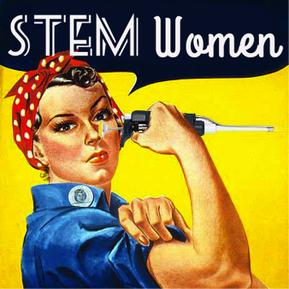
By Delphi Cleaveland 3/14/15
Women remain illusive in the STEM workplace, currently the fastest growing field of innovation and labor on the planet. The United States continues to fall behind in global rankings and soon 80% of jobs will require technological skills. Will they be able to solve the problems of work place biases and gendered expectations?
Women remain illusive in the STEM workplace, currently the fastest growing field of innovation and labor on the planet. The United States continues to fall behind in global rankings and soon 80% of jobs will require technological skills. Will they be able to solve the problems of work place biases and gendered expectations?
DOJ Slip-up Results in 7 years of Wrongful Deportations

By Maggie McGrane 3/14/15
In the wake of a recent Board of Immigration Appeals case the Department of Justice admitted to seven years of inaccurate interpretation of Immigration Law.
In the wake of a recent Board of Immigration Appeals case the Department of Justice admitted to seven years of inaccurate interpretation of Immigration Law.
Shutting Down Effective Governance
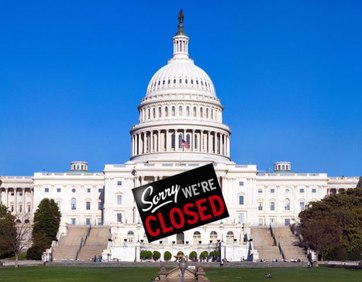
By Leor Ginzburg 3/14/15
There is a need for US politicians to refine governmental processes and operate in a state-centric rather than a party-centric system; viewing government shutdowns as bad publicity rather than a means by which to advance a party agenda is one key way to so do.
There is a need for US politicians to refine governmental processes and operate in a state-centric rather than a party-centric system; viewing government shutdowns as bad publicity rather than a means by which to advance a party agenda is one key way to so do.
Cybersecurity Q and A: Cyber Crime and How to Stop It

By Zachary Schmetterer 3/14/15
As our society becomes increasingly dependent on its cyber infrastructure, it is critically important to understand the necessity of cybersecurity in this day and age. The extent of the damage caused cyber crime penetrates far deeper into the economic foundation of this country than one would assume from looking at the small number attacks that made headlines last year.
As our society becomes increasingly dependent on its cyber infrastructure, it is critically important to understand the necessity of cybersecurity in this day and age. The extent of the damage caused cyber crime penetrates far deeper into the economic foundation of this country than one would assume from looking at the small number attacks that made headlines last year.
Drug Law Criminalization and the Deterioration of Civil Liberties

By Cris Lee 3/14/15
The Prison system within the United States is a horribly demented piece of evidence to overly criminalized drug charges. While laws criminalizing certain drugs are necessary, there should be some clarification to what specific activities should be criminalized.
The Prison system within the United States is a horribly demented piece of evidence to overly criminalized drug charges. While laws criminalizing certain drugs are necessary, there should be some clarification to what specific activities should be criminalized.
The Fight for Suffrage Continues…With 17 Year-Olds

By Woojin Choi 3/14/15
With governments in almost every democracy desperate to try to bring young people back into the civic fold, lowering the voting age might just be the answer.
With governments in almost every democracy desperate to try to bring young people back into the civic fold, lowering the voting age might just be the answer.
Boehner’s Big Moment
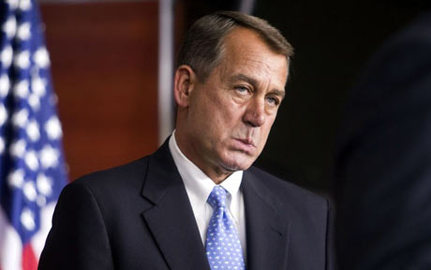
By Lucas Berger 3/14/15
Speaker John Boehner has a great opportunity this term to establish Republican policy and assert his party's power. But can he successfully unite a divided party and fight off President Obama, or will his status as a leader collapse under increased pressure?
Speaker John Boehner has a great opportunity this term to establish Republican policy and assert his party's power. But can he successfully unite a divided party and fight off President Obama, or will his status as a leader collapse under increased pressure?
Brace Yourselves, And Make Sure You Get My Good Side
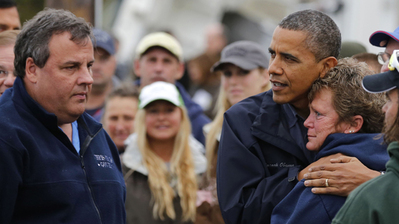
By Michael Alter 3/14/15
Discussing the politics of natural disasters, and how the politicization of them by politicians and the media is not as base or useless as one might think.
Discussing the politics of natural disasters, and how the politicization of them by politicians and the media is not as base or useless as one might think.
Wisconsin Labor War 2.0

By Jackson Weber 3/14/15
As Wisconsin Governor Scott Walker’s presidential prospects blossom, the ability of unions to operate in Wisconsin shrivels once again. Right to Work laws have been popping up across the nation in Republican held states and Wisconsin is the GOP’s next target. Walker’s continued crusade against organized labor may make him the darling of the right, but that status may come at a significant cost to the well being of his constituents.
As Wisconsin Governor Scott Walker’s presidential prospects blossom, the ability of unions to operate in Wisconsin shrivels once again. Right to Work laws have been popping up across the nation in Republican held states and Wisconsin is the GOP’s next target. Walker’s continued crusade against organized labor may make him the darling of the right, but that status may come at a significant cost to the well being of his constituents.
Healthcare on the Agenda Once Again in the Supreme Court
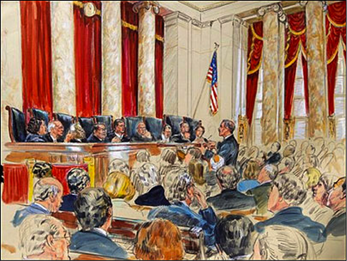
By David Taylor 3/14/15
The Supreme Court is considering practical and legal arguments in another case questioning the legality of sections of the Affordable Care Act. Arguments on a small section raise questions of jurisdiction, congressional intention, and politics along with legal issues.
The Supreme Court is considering practical and legal arguments in another case questioning the legality of sections of the Affordable Care Act. Arguments on a small section raise questions of jurisdiction, congressional intention, and politics along with legal issues.
Money in Politics
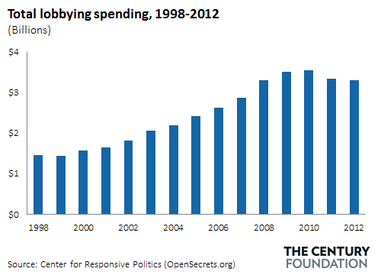
By Jared Siegel 3/14/15
A critical look at the increasing presence and influential power of money in our political environment.
A critical look at the increasing presence and influential power of money in our political environment.
Hot Little Girls With Guns
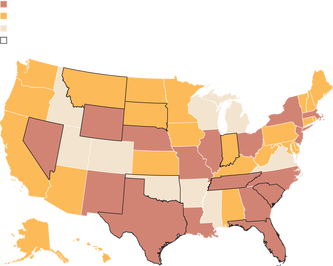
By Taylor Keating 3/14/15
Gun rights advocates and lawmakers seek to end sexual assault by permitting firearms to be carried on college campuses. Are armed civilians the best way to protect rape victims?
Gun rights advocates and lawmakers seek to end sexual assault by permitting firearms to be carried on college campuses. Are armed civilians the best way to protect rape victims?
A Critical Look at “America's College Promise”

By Maggie Mcgrane 2/18/15
President Obama’s most recent policy proposal, “America’s College Promise”, may further privatize four-year institutions and fuel the continuing shift of the middle class into two year institutions.
President Obama’s most recent policy proposal, “America’s College Promise”, may further privatize four-year institutions and fuel the continuing shift of the middle class into two year institutions.
The Future for Gitmo

By Woojin Choi 2/18/15
With the controversy surrounding Guantanamo Bay, its existence has come be a topic of great contention. President Obama needs to take greater measures to eliminate mistreatment of detainees that has occurred within its facilities. At the same time, Obama needs to preserve Gitmo and its operations for the safety of the American people.
With the controversy surrounding Guantanamo Bay, its existence has come be a topic of great contention. President Obama needs to take greater measures to eliminate mistreatment of detainees that has occurred within its facilities. At the same time, Obama needs to preserve Gitmo and its operations for the safety of the American people.
Obama's Proposal Could Spell End For Government Corporate Handout

By David Taylor, 2/18/15
Publicly funded stadiums, which are used entirely for private purposes, are a drag on local economies. President Obama is trying to end this practice in his proposed budget, and he may find some unlikely allies across the aisle.
Publicly funded stadiums, which are used entirely for private purposes, are a drag on local economies. President Obama is trying to end this practice in his proposed budget, and he may find some unlikely allies across the aisle.
Why Not Clean Up The Act?
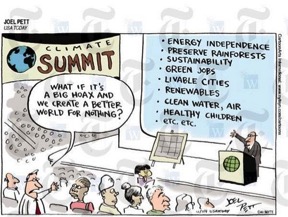
By Delphi Cleaveland 2/18/15
While our spacious skies are being clouded with smog, our amber waves of grain murdered by drought, and the shining seas are heated and rising, debates and discussions on climate change have eerily abated in the United States political sector. Even following the recent Keystone XL pipeline deliberation and the continuous drops in gas prices, climate change fails to take precedent among some facets of Congress. How do the President and EPA respond?
While our spacious skies are being clouded with smog, our amber waves of grain murdered by drought, and the shining seas are heated and rising, debates and discussions on climate change have eerily abated in the United States political sector. Even following the recent Keystone XL pipeline deliberation and the continuous drops in gas prices, climate change fails to take precedent among some facets of Congress. How do the President and EPA respond?
Return of the States Rights Debate: Same Sex Marriage Edition

By Jackson Weber 2/18/15
Once again, the state of Alabama is attempting to assert the argument of states rights in debate of a controversial social issue. This time, the issue is gay marriage. Gone is George Wallace defending segregation and present is Chief Justice Roy Moore working to resist the federal judiciary system.
Once again, the state of Alabama is attempting to assert the argument of states rights in debate of a controversial social issue. This time, the issue is gay marriage. Gone is George Wallace defending segregation and present is Chief Justice Roy Moore working to resist the federal judiciary system.
I Lied, New York

By Michael Alter 2/18/15
A look at the record of corruption in Albany and ways different groups are proposing to curb it after the indictment of former NYS Assembly Speaker Sheldon Silver.
A look at the record of corruption in Albany and ways different groups are proposing to curb it after the indictment of former NYS Assembly Speaker Sheldon Silver.
Same Sex Marriage, the Supremacy clause and the State of Alabama
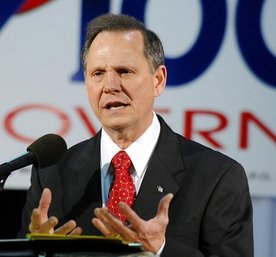
By David Taylor 2/18/15
Chaos in Alabama as State Chief justice, Roy Moore, issues an order to probate judges to halt the issuing of marriage licenses to same sex couples defining federal courts order. The broad support in Alabama for Chief Justice Moore’s action will not be enough to supersede the supremacy of the Federal Court.
Chaos in Alabama as State Chief justice, Roy Moore, issues an order to probate judges to halt the issuing of marriage licenses to same sex couples defining federal courts order. The broad support in Alabama for Chief Justice Moore’s action will not be enough to supersede the supremacy of the Federal Court.
Pay-Day Loans and Native American Nations
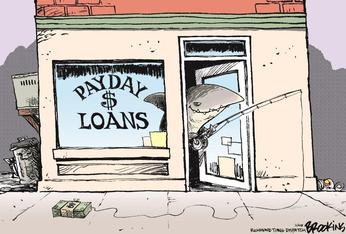
By Cris Lee 2/18/15
Native American Nations exist in an odd political junction: they govern independently, but are still dependencies of the United States. This puts Native Nations in the center of legal battles for corporations attempting to avoid financial obligations.
Native American Nations exist in an odd political junction: they govern independently, but are still dependencies of the United States. This puts Native Nations in the center of legal battles for corporations attempting to avoid financial obligations.
Ebola: Losing Civil Liberties to Fear

By David Taylor, 11/9/2014
As the United States deals with a handful of Ebola cases, controversy over quarantining persons returning from infected African states. In a state of fear, states are overreacting and infringing on civil liberties in the name of safety.
As the United States deals with a handful of Ebola cases, controversy over quarantining persons returning from infected African states. In a state of fear, states are overreacting and infringing on civil liberties in the name of safety.
The Quarantine Controversy
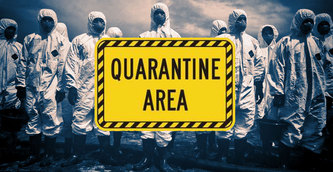
By Jackson Weber, 11/9/2014
As the use of quarantines continues to rise in the battle against Ebola in the U.S., their legality and effectiveness have come into question. Despite the varying state-by-state approaches to quarantines, policy coordination and clarification must occur to eliminate the domestic Ebola threat.
As the use of quarantines continues to rise in the battle against Ebola in the U.S., their legality and effectiveness have come into question. Despite the varying state-by-state approaches to quarantines, policy coordination and clarification must occur to eliminate the domestic Ebola threat.
The Incarceration Nation

By Victoria Sulenski, 11/9/2014
Currently, the United States has 5% of the world’s population but 22% of the world’s prisoners. Meanwhile, as crime decreases each year, incarceration increases, with a large percentage of the prison population consisting of racial minorities. Prison policy and racial disparities within the justice system need to be scrutinized.
Currently, the United States has 5% of the world’s population but 22% of the world’s prisoners. Meanwhile, as crime decreases each year, incarceration increases, with a large percentage of the prison population consisting of racial minorities. Prison policy and racial disparities within the justice system need to be scrutinized.
Aging Prisoners

By Julia Saltzman, 11/9/2014
Since the elderly are the fastest-growing segment of the already too large prison population in America, we should release older prisoners who do not threaten public safety. Long-term imprisonment of the elderly is harming the prisoners and costing the taxpayers.
Since the elderly are the fastest-growing segment of the already too large prison population in America, we should release older prisoners who do not threaten public safety. Long-term imprisonment of the elderly is harming the prisoners and costing the taxpayers.
Women's Power at the Polls

By Maggie McGrane, 11/9/2014
With the 2016 election looming, both Democrats and Republicans are employing a variety of tactics to win the over female voters.
With the 2016 election looming, both Democrats and Republicans are employing a variety of tactics to win the over female voters.
Two Ways to Slow Down Police Brutality

By Jon Levitan, 11/9/2014
Police brutality is an ongoing, devastating problem in our country. Can chest-mounted cameras and a more representative force mitigate the problem?
Police brutality is an ongoing, devastating problem in our country. Can chest-mounted cameras and a more representative force mitigate the problem?
Proposition 47: Better Safe than Sorry
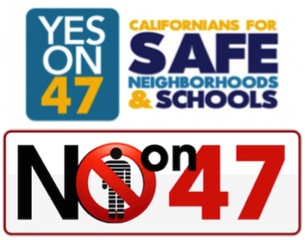
By Sydney Lester, 11/9/2014
Proposition 47 proposes that certain “nonserious and nonviolent property and drug crimes” be reduced in sentencing from felony to misdemeanor in California. Opponents note that the measure decreases the seriousness of some controversial crimes, but supporters maintain that the lasting effects of the proposition could prevent crimes of a more serious nature down the road. Despite strong arguments for both sides, when it comes to gateway crimes caution should be the top priority.
Proposition 47 proposes that certain “nonserious and nonviolent property and drug crimes” be reduced in sentencing from felony to misdemeanor in California. Opponents note that the measure decreases the seriousness of some controversial crimes, but supporters maintain that the lasting effects of the proposition could prevent crimes of a more serious nature down the road. Despite strong arguments for both sides, when it comes to gateway crimes caution should be the top priority.
Politics as Usual in the Gun Control Debate

By Alex Goldstein, 11/9/2014
Despite the prevalence of gun violence in American culture, efforts to reform gun control policy have been largely subsumed by electoral politics at the federal level.
Despite the prevalence of gun violence in American culture, efforts to reform gun control policy have been largely subsumed by electoral politics at the federal level.
Let's Talk About Rape Culture

By Delphi Cleaveland, 11/9/2014
Phrases and concepts such as “party culture” and “blackout drinking” have normalized a culture of sexual violence on college campuses. What is worse, rape culture leads victims to feel too intimidated or silenced to report sexual assault to their own bodies.
Phrases and concepts such as “party culture” and “blackout drinking” have normalized a culture of sexual violence on college campuses. What is worse, rape culture leads victims to feel too intimidated or silenced to report sexual assault to their own bodies.
Ebola: A Local Approach to a National Problem
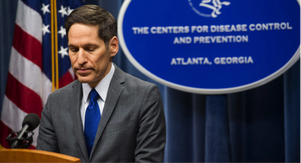
By Woojin Choi, 11/9/2014
Discussion of the policy response to Ebola nowadays seems to focus on criticizing the federal government. An emphasis on the locality, however, in dealing with diseases like Ebola may constitute a more sound response to health crises like this.
Discussion of the policy response to Ebola nowadays seems to focus on criticizing the federal government. An emphasis on the locality, however, in dealing with diseases like Ebola may constitute a more sound response to health crises like this.
Minimum Wage Driving Midterm Elections

By Lucas Berger, 11/9/2014
Raising the minimum wage has become a crucial debate in the Midterm elections, providing a respite from the usual smear campaigns and possibly paving the wave for future changes.
Raising the minimum wage has become a crucial debate in the Midterm elections, providing a respite from the usual smear campaigns and possibly paving the wave for future changes.
Broken News
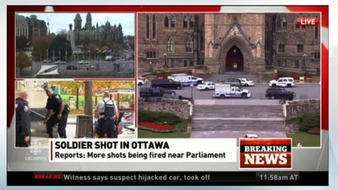
By Michael Alter, 11/9/2014
After last months’ Ottawa shooting, Canadian and American television media outlets covered the event very differently. Due to recent trends in American news media towards more sensationalist headlines and prioritizing speed rather than accuracy in their reportage more than their Canadian compatriots, American media can better perform the functions they must if this country’s democracy is to flourish.
After last months’ Ottawa shooting, Canadian and American television media outlets covered the event very differently. Due to recent trends in American news media towards more sensationalist headlines and prioritizing speed rather than accuracy in their reportage more than their Canadian compatriots, American media can better perform the functions they must if this country’s democracy is to flourish.
New Legislation, Old Goals?
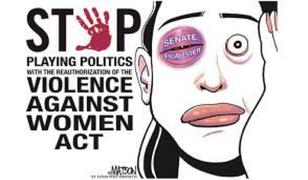
By Delphi Cleaveland, 10/21/2014
President Obama’s reauthorization of the Violence Against Women Act, was initially met with stark opposition from House Republicans, however one year later the bill was nonetheless passed. Skeptics critique the sincerity of the extent to which this new bill will create social change among citizens.
President Obama’s reauthorization of the Violence Against Women Act, was initially met with stark opposition from House Republicans, however one year later the bill was nonetheless passed. Skeptics critique the sincerity of the extent to which this new bill will create social change among citizens.
Strides Continue in the Fight for Marriage Equality

By Alex Goldstein, 10/21/2014
Over the past couple of days, gay-rights activists and supporters of marriage equality have made great progress throughout the United States.
Over the past couple of days, gay-rights activists and supporters of marriage equality have made great progress throughout the United States.
United States Territories Today

By Crispinus Lee, 10/21/2014
Territories of the United States and their inhabitants should be given full political rights to preserve and protect the quality of our democracy.
Territories of the United States and their inhabitants should be given full political rights to preserve and protect the quality of our democracy.
Marijuana Policy: Stuck in a Haze

By Jackson Weber, 10/21/2014
Reduction of public interest in marijuana policy does not eliminate the need for federal reform as state policies continue to evolve this upcoming election cycle.
Reduction of public interest in marijuana policy does not eliminate the need for federal reform as state policies continue to evolve this upcoming election cycle.
Sexual Assault Prevention Should Have Been “On Us” from the Start

By Sydney Lester, 10/21/2014
Starting programs for sexual assault awareness and education for college students is not early enough. The stigma and perpetuation of rape culture can best be eliminated through long-term education starting as early as primary school.
Starting programs for sexual assault awareness and education for college students is not early enough. The stigma and perpetuation of rape culture can best be eliminated through long-term education starting as early as primary school.
A Blue Solution to Immigration
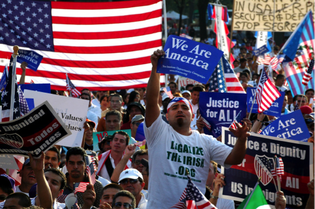
By Woojin Choi, 10/21/2014
Although both Democrats and Republicans have yet to implement a comprehensive immigration reform, both sides are constantly being pushed by the clamoring public to make some kind of change. One thing is clear: immigration reform will happen, sooner or later. The question is: which side of the approach do we take?
Although both Democrats and Republicans have yet to implement a comprehensive immigration reform, both sides are constantly being pushed by the clamoring public to make some kind of change. One thing is clear: immigration reform will happen, sooner or later. The question is: which side of the approach do we take?
Yes to "Yes Means Yes"
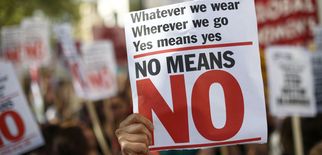
By Alexandra Klein, 10/21/2014
California and New York have pushed for new campus sexual assault policies that would redefine the traditional interpretation of consent. These policies have the potential to shift our societal interpretations of sex and reduce administrative failure in handling cases of rape.
California and New York have pushed for new campus sexual assault policies that would redefine the traditional interpretation of consent. These policies have the potential to shift our societal interpretations of sex and reduce administrative failure in handling cases of rape.
Refugee Policy in the U.S.: A Safe Haven?

By Margaret McGrane, 10/21/2014
A thorough review of United States refugee resettlement legislation has not occurred since the 1980s. The current framework fails to reflect the increasing quantity and diversity of entrants or provide adequate tools to achieve economic self-sufficiency. Understanding the shortcomings of current legislation is critical to conceptualizing how to proceed.
A thorough review of United States refugee resettlement legislation has not occurred since the 1980s. The current framework fails to reflect the increasing quantity and diversity of entrants or provide adequate tools to achieve economic self-sufficiency. Understanding the shortcomings of current legislation is critical to conceptualizing how to proceed.
Newsflash: Media Needs Mending

By Victoria Sulenski, 10/21/2014
Currently, media policy in the United States allows media platforms to serve commercial needs rather than societal needs. Unbiased, international, and diverse platforms need to be encouraged and emerge with the help and support of our government.
Currently, media policy in the United States allows media platforms to serve commercial needs rather than societal needs. Unbiased, international, and diverse platforms need to be encouraged and emerge with the help and support of our government.
The LGBTQ Rights Movement Isn’t Simply About Marriage

By Michael Alter, 10/21/2014
The focus on achieving marriage equality across the nation, while an incredibly noble, worthy, and necessary goal, has the potential to be limiting to the LGBTQ rights movement as a whole by focusing the general public only on one aspect of what it means to be queer in America today.
The focus on achieving marriage equality across the nation, while an incredibly noble, worthy, and necessary goal, has the potential to be limiting to the LGBTQ rights movement as a whole by focusing the general public only on one aspect of what it means to be queer in America today.
Why the Supreme Court Should Rule that Workers Should Be Paid

By Jon Levitan, 10/21/2014
Amazon warehouse workers are suing the temp agency that employs them because they are subject to unpaid time spent waiting for security checks, and here is why the Supreme Court should rule in favor of the workers.
Amazon warehouse workers are suing the temp agency that employs them because they are subject to unpaid time spent waiting for security checks, and here is why the Supreme Court should rule in favor of the workers.
Keystone XL: Those Who Hesitate Will Lose

By Jared Siegel, 10/21/2014
The Obama administration’s attempt to avoid making an unpopular political decision caused the United States to miss an extraordinary economic opportunity.
The Obama administration’s attempt to avoid making an unpopular political decision caused the United States to miss an extraordinary economic opportunity.
Integrity Staffing Solutions, Inc. v. Busk, and the State of Labor in the U.S.

By David Taylor, 10/21/2014
Despite rising employment and economic growth the rights and well being of workers are still important issues. In Integrity Staffing Solutions, Inc. v. Busk, Amazon workers are fighting for lost wages, and are facing a surprising opponent, the White House.
Despite rising employment and economic growth the rights and well being of workers are still important issues. In Integrity Staffing Solutions, Inc. v. Busk, Amazon workers are fighting for lost wages, and are facing a surprising opponent, the White House.
Will the Midterm Elections Bring Doom to the Democratic Party?
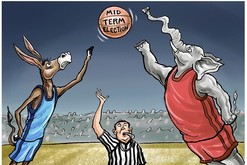
By Lucas Berger, 10/20/2014
With midterm elections fast approaching the Democratic Party is in danger of losing its majority in Senate, which would make it extremely difficult for President Obama to have a productive final two years of his presidency.
With midterm elections fast approaching the Democratic Party is in danger of losing its majority in Senate, which would make it extremely difficult for President Obama to have a productive final two years of his presidency.
Is Money Undemocratic?
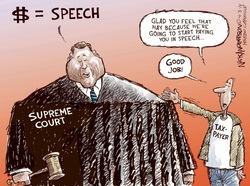
By Jared Siegel, 4/26/2014
Recent Supreme Court campaign finance reform decisions have steered the United States government further from its democratic framework.
Recent Supreme Court campaign finance reform decisions have steered the United States government further from its democratic framework.
Large Profits for Pharmaceutical Companies Marketing Questionable Drugs

By Natasha Herrick, 4/26/2014
Companies such as Questcor Pharmaceuticals rely heavily on direct-to-consumer marketing, which is providing incentives for companies to gain large profits while potentially providing ambiguous, or even misleading, information to the general public.
Companies such as Questcor Pharmaceuticals rely heavily on direct-to-consumer marketing, which is providing incentives for companies to gain large profits while potentially providing ambiguous, or even misleading, information to the general public.
The Homosexual Agenda: Is the Supreme Court the Arena of Last Resort?

By Alex Chakrin, 4/26/2014
Gay marriage advocates should continue to take broad strategies to achieving marriage equality. Popular support for marriage equality is essential for the advancement of the movement, regardless of whether or not the Supreme Court rules in favor of a right to marriage.
Gay marriage advocates should continue to take broad strategies to achieving marriage equality. Popular support for marriage equality is essential for the advancement of the movement, regardless of whether or not the Supreme Court rules in favor of a right to marriage.
The End of Television as We Know it?

By Lucas Berger, 4/26/2014
A Supreme Court Case that is expected to be ruled on sometime this summer could mark the end of major network televisions we know it.
A Supreme Court Case that is expected to be ruled on sometime this summer could mark the end of major network televisions we know it.
Resolution 72 and the Shrinking Political Opportunity Structure at Cornell
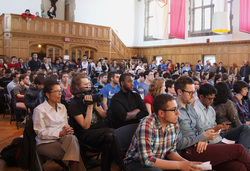
By Jon Levitan, 4/26/2014
Here at Cornell, the Political Opportunity Structure is changing; recent measures have begun to place restrictions on groups’ abilities to protest and, more importantly, have totally barred certain demands from being heard in the political sphere.
Here at Cornell, the Political Opportunity Structure is changing; recent measures have begun to place restrictions on groups’ abilities to protest and, more importantly, have totally barred certain demands from being heard in the political sphere.
Protecting Consumers of Information

By Lucas Dodge, 3/24/2014
Technological development in the information sector is outpacing the capacity for regulatory bodies to craft effective policy; the Internet is presenting unique challenges in terms of free speech, privacy, and consumer protection.
Technological development in the information sector is outpacing the capacity for regulatory bodies to craft effective policy; the Internet is presenting unique challenges in terms of free speech, privacy, and consumer protection.
Let the Slope be Slippery!: How and why progressives should advocate for Obamacare

By Alex Chakrin, 3/23/2014
“Obamacare” is a progressive achievement that works to reconcile flaws in the health care system, but it needs to be sold to the American public in the right way.
“Obamacare” is a progressive achievement that works to reconcile flaws in the health care system, but it needs to be sold to the American public in the right way.
Obama's Overtime Overhaul: Much needed reform or the best he can muster?

By Jon Levitan, 3/23/2014
President Obama has used an executive order to expand overtime pay for workers, but some debate remains over whether this move is sincere and effective reform or an acknowledgement that he doesn’t have support for true reform.
President Obama has used an executive order to expand overtime pay for workers, but some debate remains over whether this move is sincere and effective reform or an acknowledgement that he doesn’t have support for true reform.
The Minimum Wage Debate: A debate that should not be occurring
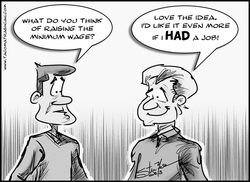
By Jared Siegel, 3/23/2014
The federal debate over whether or not to raise the minimum wage focuses on a marginally effective method to combat inequality instead of generating more meaningful policy solutions.
The federal debate over whether or not to raise the minimum wage focuses on a marginally effective method to combat inequality instead of generating more meaningful policy solutions.
Free Speech on College Campuses

By Natasha Herrick, 3/23/2014
The extent to which college campuses should protect free speech remains debatable, but it is important that the students themselves are kept in the conversation.
The extent to which college campuses should protect free speech remains debatable, but it is important that the students themselves are kept in the conversation.
Food Stamps and Federalism

By Lucas Berger, 3/23/14
State governments across the nation are refusing to give in to government spending cuts on food stamps, and how Congress reacts will say a lot about the current state of federalism in the United States.
State governments across the nation are refusing to give in to government spending cuts on food stamps, and how Congress reacts will say a lot about the current state of federalism in the United States.
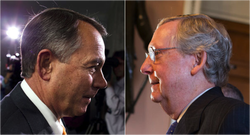
Lessons Learned From the Shutdown
By David Melly, Published 10/31/13
Policy and politics have a messy relationship. In our democratic society, the two are necessarily entwined, but too often the latter supplants the former in prominence at great expense to the American people.
By David Melly, Published 10/31/13
Policy and politics have a messy relationship. In our democratic society, the two are necessarily entwined, but too often the latter supplants the former in prominence at great expense to the American people.
Why Congress is Broken (And How We Can Fix It)

By Garrison Lovely, Published 10/31/13
America believes in a deeply personal political system. Across the country, from newsrooms to dinner tables, individual characteristics of Presidents and Speakers, Representatives and Senators, Republicans and Democrats are attributed to successes or failures in politics. The reality is, the failures of our government to govern are largely caused by institutional obstacles and the politicians that take advantage of these obstacles for political gain.
America believes in a deeply personal political system. Across the country, from newsrooms to dinner tables, individual characteristics of Presidents and Speakers, Representatives and Senators, Republicans and Democrats are attributed to successes or failures in politics. The reality is, the failures of our government to govern are largely caused by institutional obstacles and the politicians that take advantage of these obstacles for political gain.
Smokefree Housing: A Public Health Necessity Blocked by Implementation Challenges

By Lucy Arnold, Published 10/31/13
In July 2009, the Department of Housing and Urban Development (HUD) issued a notice to all HUD regional directors, coordinators, and public housing directors, breaking decades of silence on a public health issue that had reached broad consensus many years earlier. The notice stated HUD’s new policy on smoking in public housing communities; while HUD was not banning smoking, the notice “strongly encourages Public Housing Authorities (PHAs) to implement non-smoking policies in some or all of their public housing units.”
In July 2009, the Department of Housing and Urban Development (HUD) issued a notice to all HUD regional directors, coordinators, and public housing directors, breaking decades of silence on a public health issue that had reached broad consensus many years earlier. The notice stated HUD’s new policy on smoking in public housing communities; while HUD was not banning smoking, the notice “strongly encourages Public Housing Authorities (PHAs) to implement non-smoking policies in some or all of their public housing units.”
Privacy Vs. Protection: Is it time to be afraid of the NSA?

By Alexander Chakrin, 10/31/13
Can a government’s unrestricted right to protect its citizens become a burden on society? The 4th Amendment to the Constitution guarantees “the right of the people to be secure in their persons, houses, papers, and effects, against unreasonable searches and seizures”. However, Congress and the executive branch have strayed from the language of the Constitution and engaged in illegal wiretapping of Americans abroad.
Can a government’s unrestricted right to protect its citizens become a burden on society? The 4th Amendment to the Constitution guarantees “the right of the people to be secure in their persons, houses, papers, and effects, against unreasonable searches and seizures”. However, Congress and the executive branch have strayed from the language of the Constitution and engaged in illegal wiretapping of Americans abroad.
Rethinking College Recruitment Strategies

By Melissa Giangrande, 10/31/13
If you study hard and get good grades, you can climb your way out of poverty. At least this is the romantic myth that most Americans still believe. In reality, the American system of higher education fails to create the opportunities that would allow low-income students to gain social mobility. Top colleges state their desire to recruit a diverse student body, yet they do an abysmal job at luring high-achieving, poor students into their applicant pools. The federal government must step in and take a larger role in pushing universities to more actively recruit the low-income population.
If you study hard and get good grades, you can climb your way out of poverty. At least this is the romantic myth that most Americans still believe. In reality, the American system of higher education fails to create the opportunities that would allow low-income students to gain social mobility. Top colleges state their desire to recruit a diverse student body, yet they do an abysmal job at luring high-achieving, poor students into their applicant pools. The federal government must step in and take a larger role in pushing universities to more actively recruit the low-income population.
The Vicious Cycle: Why the Government Is Ineffective

By Jared Siegal, Published 10/31/13
Multi-billionaires with ridiculous hair and unrivaled egos should not be able to trademark the backdrop of snow covered brown trees and soaring skyscrapers cutting through a crystal clear blue sky. I would have much rather seen the words New York, New York, New York stamped along the boards of Central Park’s Wollman Rink. I want to be proud of where I live and want to be proud of my government. I want to enact legislation in the spirit of bipartisan compromise and I want this legislation to be effective. I want government to work like clockwork, masterfully constructed and organized. I want to associate it with a beautiful New City backdrop.
Multi-billionaires with ridiculous hair and unrivaled egos should not be able to trademark the backdrop of snow covered brown trees and soaring skyscrapers cutting through a crystal clear blue sky. I would have much rather seen the words New York, New York, New York stamped along the boards of Central Park’s Wollman Rink. I want to be proud of where I live and want to be proud of my government. I want to enact legislation in the spirit of bipartisan compromise and I want this legislation to be effective. I want government to work like clockwork, masterfully constructed and organized. I want to associate it with a beautiful New City backdrop.
Americans' Interest Is a Roadblock in Transportation Reform

By Lucas Berger, Published 10/31/13
We have all, at one time or another, bemoaned the fact that traveling such an essential part of our daily lives, is so difficult. What is strange, however, is that our complaints usually end with us slamming our horns and yelling at no one in particular. If you were to ask the average American what issues they think the government needs to take care of transportation would probably be very low on that list. Why is this the case?
We have all, at one time or another, bemoaned the fact that traveling such an essential part of our daily lives, is so difficult. What is strange, however, is that our complaints usually end with us slamming our horns and yelling at no one in particular. If you were to ask the average American what issues they think the government needs to take care of transportation would probably be very low on that list. Why is this the case?
Campaign Finance: The Time to Reform Is Now
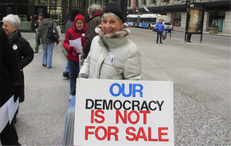
By Samantha Kaplan, 10/31/13
The governor’s race in Virginia has been heating up as Election Day nears, but the competition isn’t the only thing reaching great heights—campaign spending is as well. Terry McAuliffe is leading the race in campaign spending with a total of $14.9 million in funds, while competitor Ken Cuccinelli trails with $10 million. Campaign spending has been a hot topic in recent years—especially following President Obama and Mitt Romney’s decision to reject public funding for the presidential campaign. This rejection meant that the candidates were not subject to the limitations associated with public funding, and were able to raise significantly more funds that usual.
The governor’s race in Virginia has been heating up as Election Day nears, but the competition isn’t the only thing reaching great heights—campaign spending is as well. Terry McAuliffe is leading the race in campaign spending with a total of $14.9 million in funds, while competitor Ken Cuccinelli trails with $10 million. Campaign spending has been a hot topic in recent years—especially following President Obama and Mitt Romney’s decision to reject public funding for the presidential campaign. This rejection meant that the candidates were not subject to the limitations associated with public funding, and were able to raise significantly more funds that usual.
Voter Identification Laws Unconstitutionally Restrict the Right to Vote
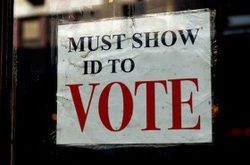
By Alexander Chakrin, 10/15/13
The 15th Amendment reads that “the right of citizens of the United States to vote shall not be denied or abridged by the United States or by any State on account of race”; this blunt language ensures that voting is not just for the wealthy white classes, but for all people regardless of race. Whether confined to property owning white men, all white men or all men, the institution of the ballot has been consistently under attack by the institutions of power.
The 15th Amendment reads that “the right of citizens of the United States to vote shall not be denied or abridged by the United States or by any State on account of race”; this blunt language ensures that voting is not just for the wealthy white classes, but for all people regardless of race. Whether confined to property owning white men, all white men or all men, the institution of the ballot has been consistently under attack by the institutions of power.
Immigration: The Right Topic at the Wrong Time

By Lucas Berger, 10/15/13
On Wednesday October 3rd the House Democratic leaders will present new a proposal that aims to replace the current immigration system in the United States. The legislation looks a lot like what was drawn up by the famed “Gang of Eight” and passed, in a rare bipartisan agreement, by the Senate in June.
On Wednesday October 3rd the House Democratic leaders will present new a proposal that aims to replace the current immigration system in the United States. The legislation looks a lot like what was drawn up by the famed “Gang of Eight” and passed, in a rare bipartisan agreement, by the Senate in June.
Congress Has Got to Know When to Fold 'Em
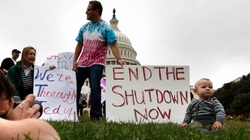
By Jared Siegel, 10/15/13
The Republican led House of Representatives finds itself in a position where it can use the drunken gambler’s advice. Since the Patient Protection and Affordable Care Act was signed into law in 2010, it has withstood a Supreme Court case and forty-one repeal attempts by the House. Over and over again, Obamacare has faced GOP opposition and weathered the resistance, yet the GOP refuses to fold ‘em.
The Republican led House of Representatives finds itself in a position where it can use the drunken gambler’s advice. Since the Patient Protection and Affordable Care Act was signed into law in 2010, it has withstood a Supreme Court case and forty-one repeal attempts by the House. Over and over again, Obamacare has faced GOP opposition and weathered the resistance, yet the GOP refuses to fold ‘em.
Mandatory Arbitrations: Locked Courthouse Doors

By Melissa Giangrande, 10/3/13
The 1925 Federal Arbitration Act grants the power to include mandatory binding arbitrations in consumer and employment contracts. The law states binding arbitration is “valid, irrevocable, and enforceable save upon such grounds as exist at law or in equity for revocation of any contract.” It also allows federal courts to enforce arbitration if a party does not comply with the agreement. Essentially, it shuts the doors of the courthouse to consumers and employees by forcing them to sign away their rights to sue, usually unknowingly.
The 1925 Federal Arbitration Act grants the power to include mandatory binding arbitrations in consumer and employment contracts. The law states binding arbitration is “valid, irrevocable, and enforceable save upon such grounds as exist at law or in equity for revocation of any contract.” It also allows federal courts to enforce arbitration if a party does not comply with the agreement. Essentially, it shuts the doors of the courthouse to consumers and employees by forcing them to sign away their rights to sue, usually unknowingly.
Putting a Stop to "Stop and Frisk" Laws
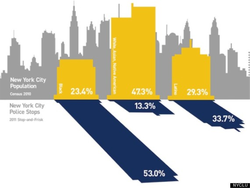
By Samantha Kaplan, 10/3/13
On September 9th, a federal judge in New York City ruled New York Police Department’s controversial stop-and-frisk policy unconstitutional. Stop-and-frisk allows police officers to stop and search any suspicious looking individual, toeing dangerously close to our fourth amendment rights against search and seizure.
On September 9th, a federal judge in New York City ruled New York Police Department’s controversial stop-and-frisk policy unconstitutional. Stop-and-frisk allows police officers to stop and search any suspicious looking individual, toeing dangerously close to our fourth amendment rights against search and seizure.
What's Up With Voter ID Laws These Days?
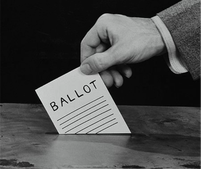
By David Melly, 10/3/13
In the months since the landmark Supreme Court decision Shelby County v. Holder struck down parts of the Voting Rights Act of 1965, the consequences of this action have taken a backseat to other pressing issues. But behind the scenes, a disturbing trend has been continuing its relentless spread across the nation: the resurgence of voter ID bills in state legislatures, in larger numbers than the election year before.
In the months since the landmark Supreme Court decision Shelby County v. Holder struck down parts of the Voting Rights Act of 1965, the consequences of this action have taken a backseat to other pressing issues. But behind the scenes, a disturbing trend has been continuing its relentless spread across the nation: the resurgence of voter ID bills in state legislatures, in larger numbers than the election year before.
Rethinking the Minimum Wage
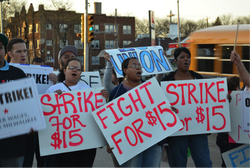
By Garrison Lovely, 10/3/13
This Labor Day, something strange happened: people actually talked about labor in America. This was due to a coordinated strike of fast food workers in over 60 cities at the end of August. The strikers demanded a doubling of their wage from the federal minimum of $7.25 an hour to a “living wage” of $15 an hour.
This Labor Day, something strange happened: people actually talked about labor in America. This was due to a coordinated strike of fast food workers in over 60 cities at the end of August. The strikers demanded a doubling of their wage from the federal minimum of $7.25 an hour to a “living wage” of $15 an hour.
Where Do We Go Now?
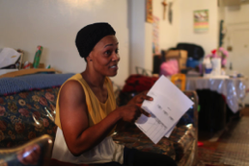
By Serin Choi, 10/3/13
When discussing housing and cost of living in New York City, the tendency to focus on exorbitant rents of posh neighborhoods and the small size of apartments pushes more important issues into the background. However, one borough is ignored completely yet has an even more pressing problem—in the Bronx, the landlords are manipulating fees to force out their current tenants.
When discussing housing and cost of living in New York City, the tendency to focus on exorbitant rents of posh neighborhoods and the small size of apartments pushes more important issues into the background. However, one borough is ignored completely yet has an even more pressing problem—in the Bronx, the landlords are manipulating fees to force out their current tenants.
Re-evaluating Schedule I Controlled Substances
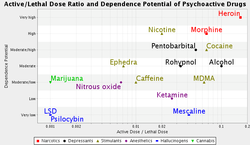
By Lucas Dodge, 10/3/13
In the United States, the Controlled Substance Act gives the Executive branch authority to classify drugs according to their medical uses and the potential for abuse. The Drug Enforcement Administration (DEA) – the federal agency tasked with enforcing controlled substance laws – uses these categorizations, or “schedules” as guidelines for prioritizing enforcement.
In the United States, the Controlled Substance Act gives the Executive branch authority to classify drugs according to their medical uses and the potential for abuse. The Drug Enforcement Administration (DEA) – the federal agency tasked with enforcing controlled substance laws – uses these categorizations, or “schedules” as guidelines for prioritizing enforcement.
The Last Great Struggle

By Garrison Lovely, 5/1/13
In a country where elected officials and Supreme Court justices compare gay sex to bestiality and incest, where overt and tacit discrimination still exists, where there is a living history of legal persecution, a public display of support goes a long way.
In a country where elected officials and Supreme Court justices compare gay sex to bestiality and incest, where overt and tacit discrimination still exists, where there is a living history of legal persecution, a public display of support goes a long way.
The Real Problem With U.S. Politics: The Electorate is Shades of Purple while Representatives are Increasingly Deeper Reds and Blues
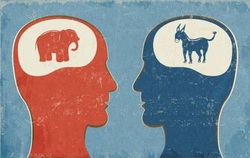
By Gavin Zhang, 5/1/13
Unfortunately, the problem of Congressional deadlock isn’t just caused by a growing trend in perceived political polarization but is additionally caused by the discrepancy between the Congressional representatives who are actually growingly politically polarized, while their constituents remain relatively moderate.
Unfortunately, the problem of Congressional deadlock isn’t just caused by a growing trend in perceived political polarization but is additionally caused by the discrepancy between the Congressional representatives who are actually growingly politically polarized, while their constituents remain relatively moderate.
Speed Bumps on the Path to Immigration Reform
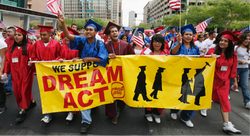
By Samantha Kaplan, 5/1/13
Due to the huge influx of illegal immigrants into the U.S. in the last decade, immigration policy has become a source of debate among law-makers and citizens across the country. How do we deal with the 11 million undocumented people living within our borders? Is it fair for them to utilize public goods like hospitals and schools without paying taxes? Should these illegal immigrants be given a path to citizenship? The Development, Relief, and Education for Alien Minors, known as the DREAM Act, is one of the many proposed solutions to create a path to citizenship for some of these illegal immigrants.
Due to the huge influx of illegal immigrants into the U.S. in the last decade, immigration policy has become a source of debate among law-makers and citizens across the country. How do we deal with the 11 million undocumented people living within our borders? Is it fair for them to utilize public goods like hospitals and schools without paying taxes? Should these illegal immigrants be given a path to citizenship? The Development, Relief, and Education for Alien Minors, known as the DREAM Act, is one of the many proposed solutions to create a path to citizenship for some of these illegal immigrants.
Mandatory Ultrasounds: Chipping Away at Roe v. Wade

By Lucy Arnold, 5/1/13
This winter, Indiana lawmakers proposed S.B. 371, a measure intended to shut down a Planned Parenthood clinic by tightening regulations for abortion providers, among other anti-abortion provisions. One of the most controversial of those provisions, which was later removed due to outrage that gained national attention and threatened the successful passage of the bill, would have required abortion providers to perform an ultrasound upon a woman seeking an abortion.
This winter, Indiana lawmakers proposed S.B. 371, a measure intended to shut down a Planned Parenthood clinic by tightening regulations for abortion providers, among other anti-abortion provisions. One of the most controversial of those provisions, which was later removed due to outrage that gained national attention and threatened the successful passage of the bill, would have required abortion providers to perform an ultrasound upon a woman seeking an abortion.
A National Discrimination Policy

By Melissa Giangrande, 5/1/13
The spotlight on gender-based income inequalities is bright; it is a highly controversial topic. Obama’s recent call to increase the minimum wage from $7.25 to $9.00 an hour also made headlines following his State of the Union Address. Even raising the tipped worker subminimum wage of $2.13 an hour has been discussed by Congress. Yet, the majority of politically active Americans are completely ignorant of the exploitation of worker’s with disabilities.
The spotlight on gender-based income inequalities is bright; it is a highly controversial topic. Obama’s recent call to increase the minimum wage from $7.25 to $9.00 an hour also made headlines following his State of the Union Address. Even raising the tipped worker subminimum wage of $2.13 an hour has been discussed by Congress. Yet, the majority of politically active Americans are completely ignorant of the exploitation of worker’s with disabilities.
Newtown Has Become "Oldtown"
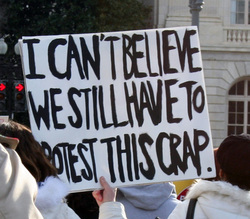
By Dhruv Gupta, 5/1/13
Recent shootings in the United States have drawn the attention of the nation, its politicians and the press to a topic that is becoming all too prevalent in the “greatest and safest country in the world”: Gun violence.
Recent shootings in the United States have drawn the attention of the nation, its politicians and the press to a topic that is becoming all too prevalent in the “greatest and safest country in the world”: Gun violence.
Freedom of Internet Access and Democracy

By Tianjun Hou, 5/1/13
Compared with the USA, the Chinese people need more power to convert their ideas in social media into action to achieve democracy.
Compared with the USA, the Chinese people need more power to convert their ideas in social media into action to achieve democracy.
Drug Testing for Welfare: Bad Policy

By Lucas Dodge, 5/1/13
As of March 28, 2013, there are bills in the Kansas and Texas state legislatures requiring certain welfare applicants and recipients to submit to drug testing. They are partially modeled off a Florida law that was recently struck down by the 11th U.S. Circuit Court of Appeals.
As of March 28, 2013, there are bills in the Kansas and Texas state legislatures requiring certain welfare applicants and recipients to submit to drug testing. They are partially modeled off a Florida law that was recently struck down by the 11th U.S. Circuit Court of Appeals.
The Myth of a Balanced Budget
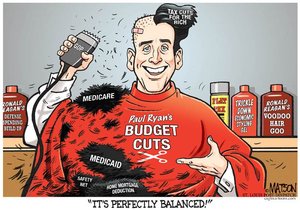
By David Melly, 5/1/13
With the passage of the Paul Ryan budget in the House of Representatives last week and its subsequent rejection by the Senate, congressional Republicans continue to demand fiscal austerity and, specifically, entitlement cuts. This logic appears to be based primarily on the idea that the best road to economic recovery is a balanced budget and that the government should not be spending more money than it takes in.
With the passage of the Paul Ryan budget in the House of Representatives last week and its subsequent rejection by the Senate, congressional Republicans continue to demand fiscal austerity and, specifically, entitlement cuts. This logic appears to be based primarily on the idea that the best road to economic recovery is a balanced budget and that the government should not be spending more money than it takes in.
